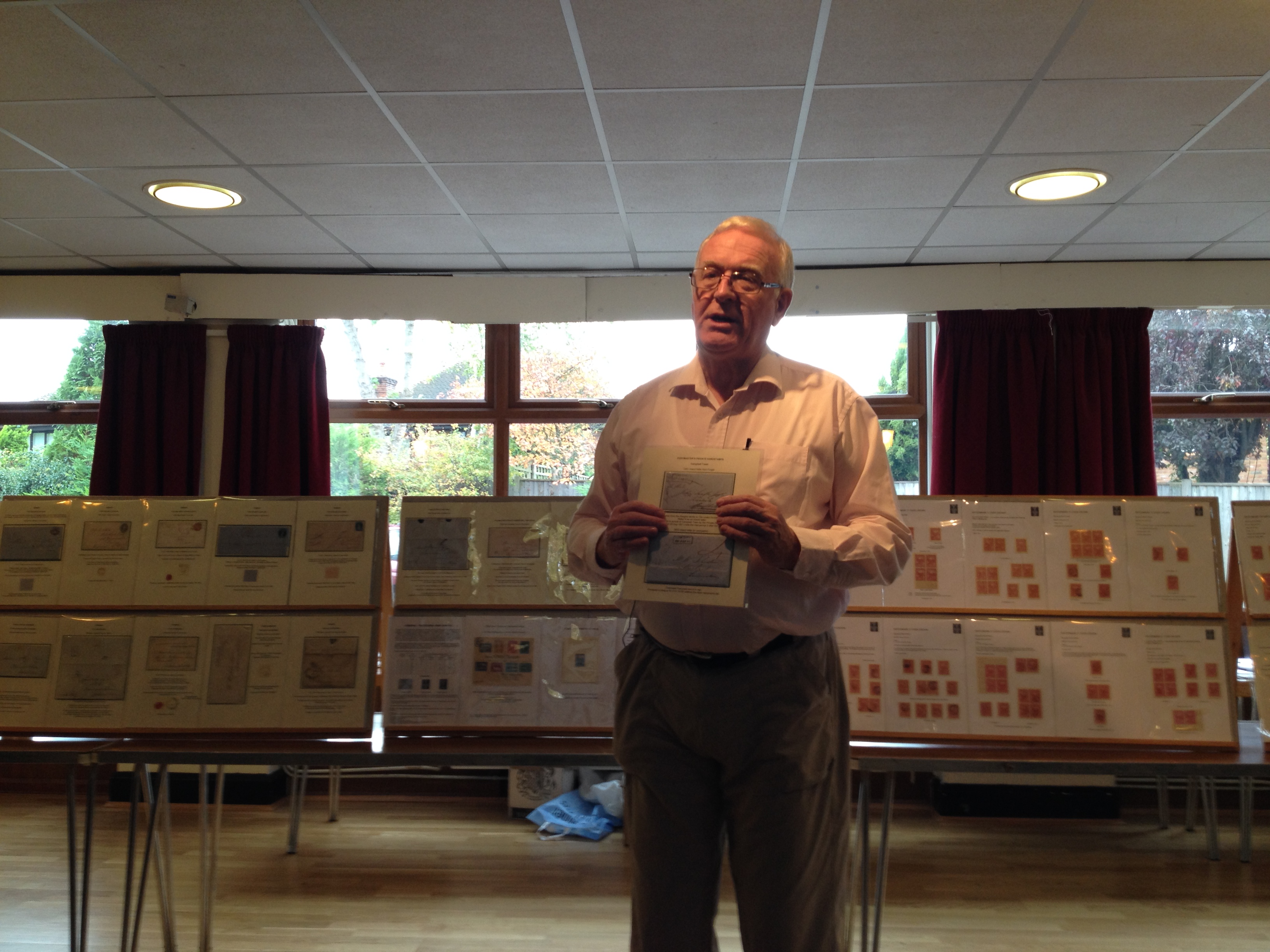Tasmania, like all other Australian states, issued and sold its own stamps until 1913 when the first stamps were issued for the whole of Australia. Dr Reid gave a very comprehensive review of the entire period of the territory’s postal service.
Throughout this period, mail was a major means of communication for business and domestic users. They needed reliable and speedy mail to survive; mail to Europe and especially GB was an essential component of life. The British colony was being rapidly settled and businesses and communities were emerging. Dr Reid showed many examples of both domestic and international mail that was a vital part of the whole, as vital as email, the Internet and phones are today.
There was much here for those with an interest in postal history and economic history illustrated by the mail. But there was also much of philatelic interest. Dr Reid has obviously researched very thoroughly the various printings, changes in perforations, overprints and related matters. Some of these illustrated the long lead time in those days 120 or more years ago when the needs for stamps and their denominations had to be planned for and with a long lead time for the necessary design and engraving, although Tasmania unlike most British colonies, did have its own high quality Government Printer in the capital Hobart.
We also saw some very interesting examples of revenue stamps used for the payment of various dues. There was rarity here and a lot of interest and variety showing just how our hobby has many aspects and goes in different directions.
This was a brilliant example of the results of excellent research good choice of content and great variety in a display that illustrated why many people still find stamp collecting absorbing and intriguing. One thing is clear; our descendants will have difficulty 100 years hence giving an illustrated talk about communications today using early 21st Century texts, emails and Internet screen grabs. Even if such things are collected and I don't think they are (what would you actually collect?) It won't be the same.
